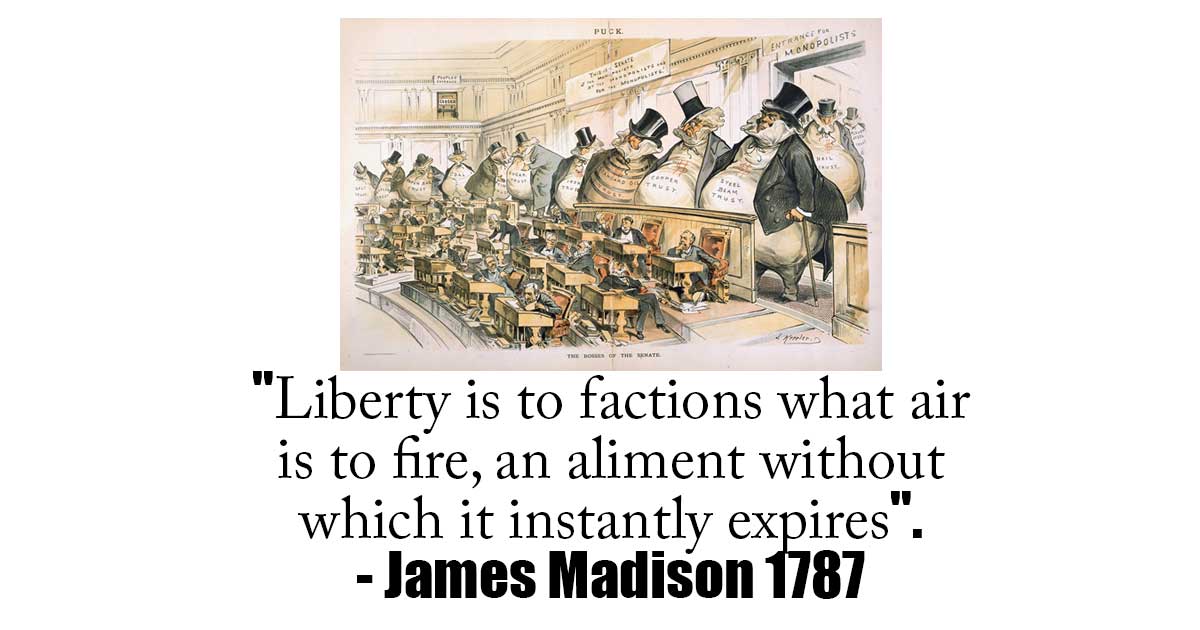Why Did the Founding Fathers Choose a Republic?

America’s founding fathers intended the U.S. to be a Republic (elected officials vote on laws), rather than a Direct Democracy (everyone votes on laws).
George Washington was the first President of the United States, the Commander-in-Chief of the Continental Army during the American Revolutionary War, and one of the Founding Fathers of the United States. He presided over the convention that drafted the current United States Constitution and during his lifetime was called the “father of his country”.
George Washington was the only President to not run under a party, instead he famously warned against political factions in his farewell address.
“All obstructions to the execution of the laws, all combinations and associations, under whatever plausible character, with the real design to direct, control, counteract, or awe the regular deliberation and action of the constituted authorities, are destructive of this fundamental principle, and of fatal tendency. They serve to organize faction, to give it an artificial and extraordinary force; to put, in the place of the delegated will of the nation the will of a party, often a small but artful and enterprising minority of the community; and, according to the alternate triumphs of different parties, to make the public administration the mirror of the ill-concerted and incongruous projects of faction, rather than the organ of consistent and wholesome plans digested by common counsels and modified by mutual interests.” – Washington on Political Parties

America’s founding fathers intended the U.S. to be a Republic (elected officials vote on laws), rather than a Direct Democracy (everyone votes on laws).

Special interests describe interests that are not purely public interests. Factions (special interest groups) are groups formed around shared interests (special interests).